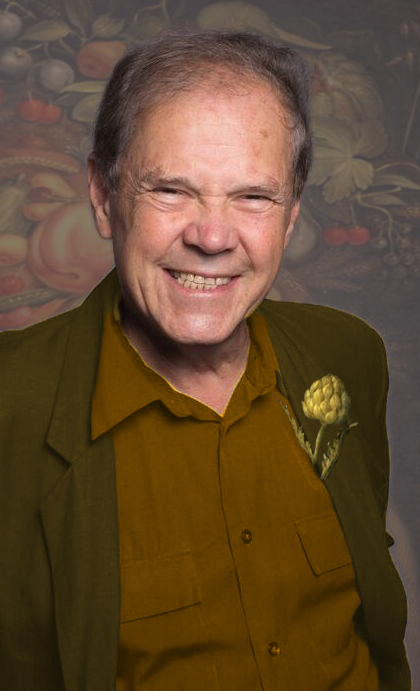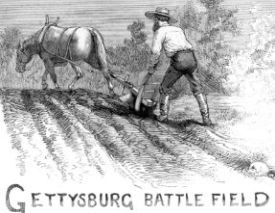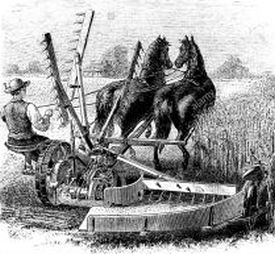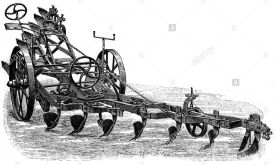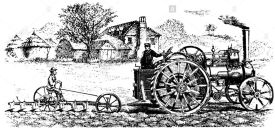
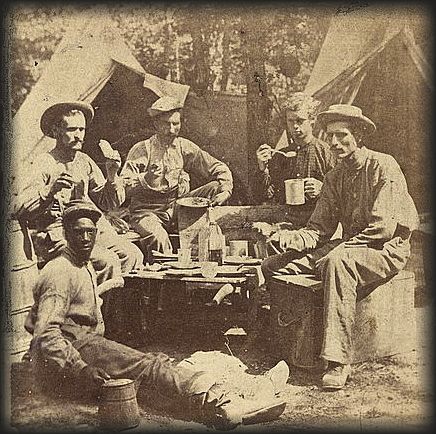 The Army of the Potomac
|
BRUCE KRAIG Professor of History, Emeritus Roosevelt University How the CIVIL WAR made MODERN FOOD Possible Tuesday, October 15, 2019 5:30 - 8:30 pm The Lounge at Iwan Ries 19 South Wabash Av. |
|
|
Cocktails at 5:30, with the presentation at 6:00 for about thirty minutes, followed by Q&A and general cocktail conversation. Reservations with EventBrite Event Support are required. (Select the green "Tickets" link.) |
||
|
Professor Kraig
writes: "Whatever you eat, you’re eating
history. Food is the driving force in human
history, from changes in early human morphology to
human transformation of the natural world.
The whole story of America really comes down to
food, its production, and its consumption.
No single culinary creation tells us more about
the whole story of world and American food than
the submarine-hoagie-grinder-torpedo-zeppelin-bomber-hero-garibaldi-Italian-musalatta
sandwich. This talk will be about that world
and American history through the deconstruction of
that great American creation." Bruce Kraig is Professor of History
and Humanities, Emeritus, at Roosevelt University,
where he taught a wide variety of courses in
history, anthropology, and popular culture, and
since retiring from Roosevelt he has lectured
about food at the culinary school of Kendall
College, Chicago. Professor Kraig has
appeared widely in the electronic media as writer
and on-camera host and narrator for a multi-award
winning PBS series on food and culture around the
world. His publications range from books and
articles in academic journals on European and
world prehistory through American history.
He has written hundreds of articles on food in
newspapers, journals and for encyclopedia.
His books about cookery and culinary history
include Mexican-American Plain Cooking; The
Cuisines of Hidden Mexico; Hot Dog: A
Global History; Man Bites Dog: Hot Dog
Culture in America; editor Cooking
Plain: Illinois Style (2012), co-editor
(with Colleen Sen) Street Food Around the
World: An Encyclopedia of Food and Culture
(2013), co-editor (with Colleen Sen and Carol
Haddix) Food City: The Encyclopedia of Chicago
Food (2017) and A Rich and Fertile Land
(2017). He is the editor of the “Heartland
Foodways” book series for the University of
Illinois Press. Professor Kraig holds a BA
from UC Berkeley (1962) and MA and PhD degrees
from the University of Pennsylvania (1963, 1969). * * * --Lord Byron (1788-1824) ‘The Island’, Canto xiii Stanza 99 "Food history is as important as a baroque church. Governments should recognize cultural heritage and protect traditional foods. A cheese is as worthy of preserving as a sixteenth-century building." --Carlo Petrini, Founder of the Slow Food Movement. “A soup like this is not the work of one man. It is the result of a constantly refined tradition. There are nearly a thousand years of history in this soup.” --Willa Cather, 'Death Comes for the Archbishop' (1927) |
|
About the Cigar Society of Chicago
ONE OF THE
OLDEST AND greatest traditions of the city clubs of
Chicago is the discussion of intellectual, social,
legal, artistic, historical, scientific, musical,
theatrical, and philosophical issues in the company of
educated, bright, and appropriately provocative
individuals, all under the beneficent influence of
substantial amounts of tobacco and spirits. The
Cigar Society of Chicago embraces
this tradition and extends it with its Informal
Smokers, University Series lectures,
and Cigar Society Dinners, in which cigars,
and from time to time pipes and cigarettes, appear as
an important component of our version of the classical
symposium. To be included in the Cigar Society's
mailing list, write to the secretary at
curtis.tuckey@logicophilosophicus.org.
